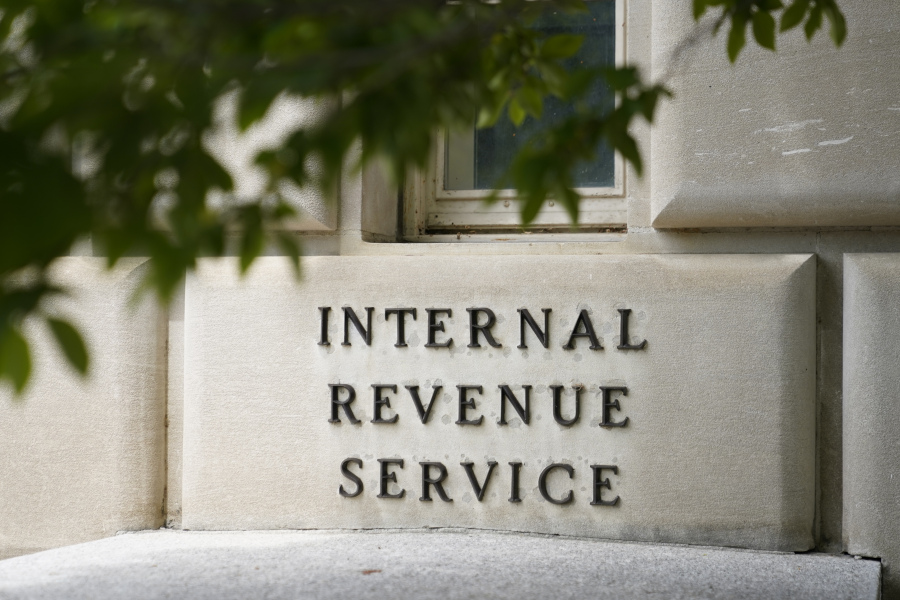WASHINGTON (AP) — An IRS plan to test drive a new electronic free-file tax return system next year has got supporters and critics of the idea mobilizing to sway the public and Congress over whether the government should set up a permanent program to help people file their taxes without needing to pay somebody else to figure out what they owe.
On one side, civil society groups this week launched a coalition to promote the move toward a government-run free-file program. On the other, tax preparation firms like Intuit — the parent company of TurboTax — and H&R Block have been pouring millions into trying to stop the idea cold.
The advocacy groups are exponentially out-monied.
An April AP analysis found that overall, Intuit, H&R Block, and other private companies and advocacy groups for large tax preparation businesses, as well as proponents in favor of electronic free file, have reported spending $39.3 million since 2006 to lobby on “free-file” and other matters. Federal law doesn’t require domestic lobbyists to itemize expenses by specific issue, so the sums are not limited to free-file.
Intuit spent at least $25.6 million since 2006 on lobbying, H&R Block about $9.6 million and the conservative Americans for Tax Reform roughly $3 million.
In contrast, the NAACP has spent $140,000 lobbying on “free-file” since 2006 and Public Citizen has spent $110,000 in the same time frame.
“What we have on our side is public opinion,” said Igor Volsky, executive director of the liberal Groundwork Action advocacy group.
Volsky’s organization and leaders from Public Citizen, the Center for the Study of Social Policy, Code for America, the Economic Security Project and others launched the “Coalition for Free and Fair Filing” on Wednesday. The group’s mission is to “ensure all U.S. taxpayers can easily file tax returns and get the tax credits they deserve by safeguarding and expanding” the new IRS program.
“The overwhelming majority of people demand a free-file option,” Volsky said. “Now the question for us is how do you channel that into effective political pressure.”
The IRS in May released a report that said most taxpayers are interested in filing their taxes directly to the IRS for free, and concurrently announced plans to launch the pilot program for the 2024 filing season. The goal is to test a direct file system that will help the IRS decide whether to move forward with a more permanent program.
That idea has faced the immediate threat of budget cuts from congressional Republicans.
Republicans on the House Appropriations Committee in June proposed a budget rider that would prohibit funds to be used for the IRS to create a government-run tax preparation software, unless approved by a group of House and Senate committees.
The move “safeguards the IRS from an obvious conflict of interest where the tax collector becomes the tax preparer,” the bill’s summary states.
A Government Accountability Report in April 2022 found that 70% of taxpayers were eligible to use an existing free-file program but just 3% actually used the service. That program consists of a public-private partnership of tax software companies that offers free services to certain taxpayers outside of the IRS website.
Additionally, anyone can prepare and mail in their taxes for free, but the tax code is so complex that almost 50% of Americans use a tax prep company. IRS officials have estimated individual taxpayers pay an average of $140 preparing their tax returns each year.
Derrick Plummer, a spokesman for Intuit, stressed the free options that already were available.
“An IRS direct-to-e-file system is redundant and will not be free – not free to build, not free to operate, and not free for taxpayers,” Plummer said, adding that it “will unnecessarily cost taxpayers billions of dollars.”
H&R Block said in a statement the direct e-file pilot “continues to be a solution in search of a problem.”
Citing the free-filing options for Americans under a certain income threshold through the existing Free File Alliance, H&R Block said, “this pilot is unnecessary and faces significant barriers to providing comprehensive tax preparation services.”
H&R Block came under fire after congressional Democrats last week released a report stating that it was one of three large tax preparation firms that sent “extraordinarily sensitive” information on tens of millions of taxpayers to Facebook parent company Meta and Google over the course of at least two years.
Susan Harley, Congress Watch managing director at Public Citizen, said “we’re outgunned as far as money being spent, but we have the moral higher ground” in supporting the free-file program over third-party tax preparers.
Nations like Germany, Japan, the U.K. and other Organization for Economic Cooperation and Development countries already offer their taxpayers some form of pre-populated tax document.
Some countries also use “tax agency reconciliation,” where taxpayers who opt to participate provide the government with basic employment status information and the tax administrator sends them a return with their calculated tax liability.
Research conducted last year by a group of Treasury, Federal Reserve and other academics shows that the IRS could pre-populate 42 to 48% of all tax returns.
The IRS has already seen cuts to its funding since the passage of the Inflation Reduction Act that President Joe Biden signed last August gave the agency $80 billion to modernize and hire more workers and move toward the free-file program.
House Republicans built a $1.4 billion reduction to the IRS into the debt ceiling and budget cuts package passed by Congress this summer. The White House said the debt deal also has a separate agreement to take $20 billion from the IRS over the next two years and divert that money to other non-defense programs.



